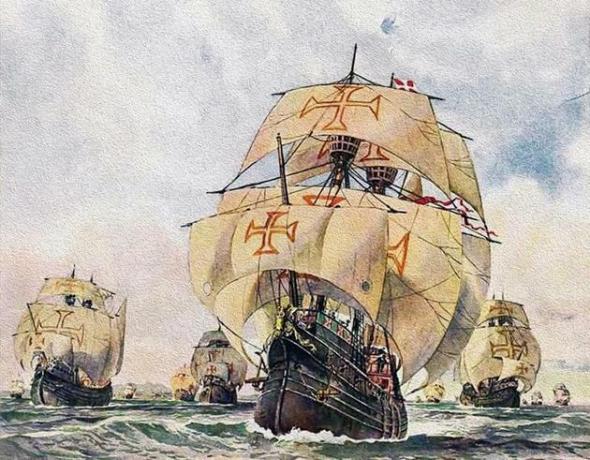The formation process of Brazil had its origins during the colonial period. The arrival of Europeans and Africans to the American lands controlled by Portugal, together with the indigenous people who lived here, ensured the establishment of one of the roots of Brazil.
But it wasn't just the Portuguese who tried to colonize the so-called Brazilian lands. There were also French and Dutch invasions of the colony. In the latter, a new figure appeared, that of the traitor to Brazil, built over time and represented by Domingos Fernandes Calabar.
Calabar was a landowner, the son of a Portuguese and an Indian woman. educated by Jesuits, Calabar abandoned lands and properties in order to fight alongside the Portuguese when the Dutch invaded Pernambuco in 1630. Alongside the troops commanded by Matias de Albuquerque, Calabar participated in the guerrilla actions that managed to contain the Dutch military forces.
However, two years later, Domingos Calabar allied with the Dutch. He stated that he did it to escape the attempt by the Portuguese and Spanish to enslave the colony, contrary to what the Dutch supposedly wanted.
Due to their knowledge of the region and also the information passed on to the invaders, the Dutch achieved several victories and they also conquered a large territory in the Northeast, since, in addition to Pernambuco, they also controlled Paraíba and Rio Grande do North. As a result, they began to control sugar production in the region.
In 1635, during the fights between the Dutch invaders and the forces linked to the Portuguese, in the Porto Calvo region, the first closed the only road in good condition. Matthias de Albuquerque's troops forced their way through and succeeded. Calabar was arrested and convicted. He died hanging and had his body dismembered.
For a long time Calabar was treated as a traitor to the motherland. But did the people who lived in the colony identify themselves as Brazilians?
This identification would hardly have taken place. The people who inhabited the colony, with the exception of slaves and most of the natives, were subjects of the king of Portugal. The concept of Brazilian would appear only many years later, in the years close to Independence, which occurred in 1822.
Furthermore, it wasn't just Calabar who collaborated with the Dutch. Many planters, cane farmers, slaves, new Christians, Tapuia Indians and poor mestizos also collaborated. Perhaps the case was not one of treason. Perhaps it was just a matter of choosing which of the colonial explorers to support.
By Me. Tales Pinto



